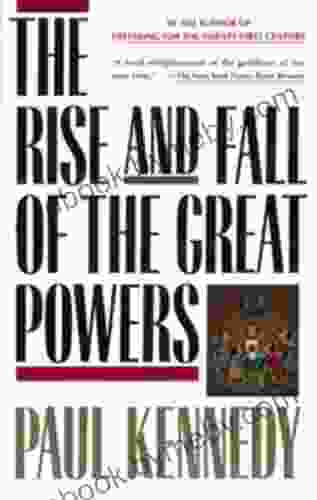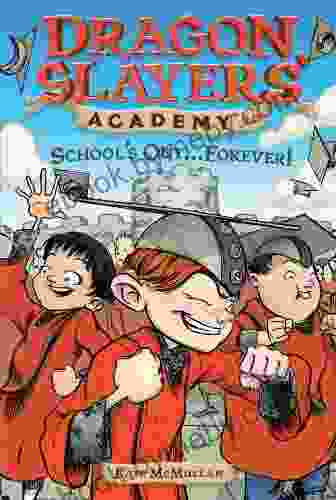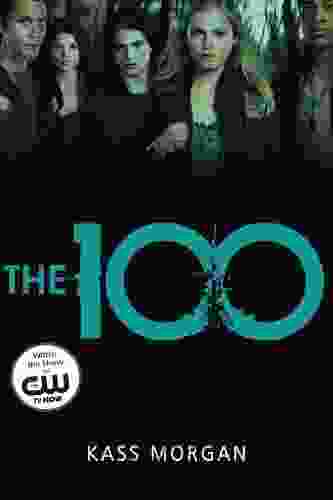Economic Change and Military Conflict From 1500 to 2000: A Comprehensive Guide

4.6 out of 5
| Language | : | English |
| File size | : | 17710 KB |
| Text-to-Speech | : | Enabled |
| Screen Reader | : | Supported |
| Enhanced typesetting | : | Enabled |
| X-Ray | : | Enabled |
| Word Wise | : | Enabled |
| Print length | : | 706 pages |
| Lending | : | Enabled |
Throughout history, economic forces have played a significant role in shaping the nature and course of military conflict. From the rise and fall of empires to the technological advancements that have transformed warfare, the interplay between economics and conflict has been a constant. This article delves into the complex relationship between economic change and military conflict, exploring the historical, political, and economic factors that have influenced warfare over centuries.
The Mercantilist Era (1500-1750)
The mercantilist era was characterized by a focus on state-led economic development and the accumulation of wealth through trade and colonialism. This period saw the rise of powerful maritime empires, such as Spain, Portugal, England, and France, who competed for control of global trade routes and resources. Economic competition and the pursuit of wealth played a major role in fueling conflicts during this time, as rival nations sought to expand their empires and protect their economic interests.
One notable example of the economic motivations behind military conflict during the mercantilist era is the Anglo-Dutch Wars (1652-1674). These wars were primarily driven by economic rivalry between England and the Dutch Republic, two major maritime powers competing for control of trade in the East Indies. The wars resulted in the decline of Dutch naval power and the rise of England as a dominant force in global trade.
The Industrial Revolution (1750-1900)
The Industrial Revolution brought about unprecedented technological advancements that transformed economies and societies worldwide. The development of new technologies, such as the steam engine and the cotton gin, led to increased productivity and economic growth. However, these economic changes also had a significant impact on military conflict.
Industrialization led to the rise of new economic powers, such as the United States and Germany, who began to challenge the established Free Download. The competition for resources and markets between these emerging powers and the old European empires created tensions that ultimately contributed to the outbreak of World War I in 1914.
The 20th Century
The 20th century witnessed two devastating world wars and numerous regional conflicts. Economic factors played a significant role in both the outbreak and the course of these conflicts.
The Great Depression of the 1930s, which led to widespread economic hardship and political instability, is often cited as a contributing factor to the rise of fascism and the outbreak of World War II. The war itself was largely driven by economic factors, as the Axis powers sought to expand their empires and control access to resources.
The Cold War, which followed World War II, was primarily an ideological conflict between the United States and the Soviet Union. However, economic factors also played a role in shaping the conflict, as the two superpowers competed for global influence and control of strategic resources.
The relationship between economic change and military conflict is a complex and multifaceted one. Throughout history, economic forces have played a significant role in shaping the nature and course of warfare. From the mercantilist era to the Industrial Revolution and the 20th century, economic competition, the pursuit of wealth, and the quest for resources have been major drivers of military conflict.
Understanding the economic dimensions of military conflict is crucial for historians, policymakers, and anyone interested in the relationship between economics and war. By examining the historical evidence and analyzing the political and economic forces that have influenced warfare, we can gain insights into the dynamics of conflict and develop strategies to prevent and resolve conflicts in the future.
4.6 out of 5
| Language | : | English |
| File size | : | 17710 KB |
| Text-to-Speech | : | Enabled |
| Screen Reader | : | Supported |
| Enhanced typesetting | : | Enabled |
| X-Ray | : | Enabled |
| Word Wise | : | Enabled |
| Print length | : | 706 pages |
| Lending | : | Enabled |
Do you want to contribute by writing guest posts on this blog?
Please contact us and send us a resume of previous articles that you have written.
 Book
Book Novel
Novel Page
Page Chapter
Chapter Text
Text Story
Story Genre
Genre Reader
Reader Library
Library Paperback
Paperback E-book
E-book Magazine
Magazine Newspaper
Newspaper Paragraph
Paragraph Sentence
Sentence Bookmark
Bookmark Shelf
Shelf Glossary
Glossary Bibliography
Bibliography Foreword
Foreword Preface
Preface Synopsis
Synopsis Annotation
Annotation Footnote
Footnote Manuscript
Manuscript Scroll
Scroll Codex
Codex Tome
Tome Bestseller
Bestseller Classics
Classics Library card
Library card Narrative
Narrative Biography
Biography Autobiography
Autobiography Memoir
Memoir Reference
Reference Encyclopedia
Encyclopedia Kelly Sheldrick
Kelly Sheldrick Leigh Hatts
Leigh Hatts Thomas J Flaherty
Thomas J Flaherty Kailash Limbu
Kailash Limbu Kate Cunningham
Kate Cunningham Tiphan Hunter
Tiphan Hunter Kemi Iwalesin
Kemi Iwalesin Kathryn Wolfe
Kathryn Wolfe Naushad Forbes
Naushad Forbes Kevin Harris
Kevin Harris Justene Hill Edwards
Justene Hill Edwards Melina Davies
Melina Davies Paul Eng
Paul Eng Sherry J Pringle
Sherry J Pringle Wendy Bryden
Wendy Bryden Satyajit Ray
Satyajit Ray Matthew Capala
Matthew Capala Kat Socks
Kat Socks Richard Carlson
Richard Carlson K Patrick Donoghue
K Patrick Donoghue
Light bulbAdvertise smarter! Our strategic ad space ensures maximum exposure. Reserve your spot today!
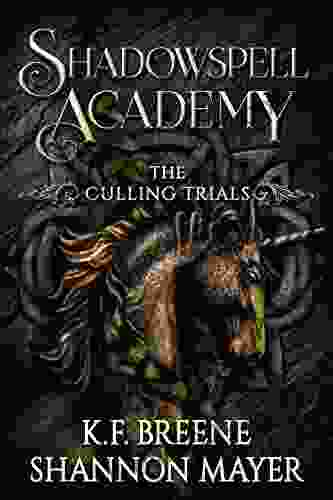
 Chase SimmonsEmbark on a Thrilling Adventure of Magic, Mystery, and Power at Shadowspell...
Chase SimmonsEmbark on a Thrilling Adventure of Magic, Mystery, and Power at Shadowspell... Bryan GrayFollow ·6.6k
Bryan GrayFollow ·6.6k Esteban CoxFollow ·8.8k
Esteban CoxFollow ·8.8k Greg FosterFollow ·3.2k
Greg FosterFollow ·3.2k Kelly BlairFollow ·9.8k
Kelly BlairFollow ·9.8k Deion SimmonsFollow ·6.8k
Deion SimmonsFollow ·6.8k Miguel de CervantesFollow ·9.2k
Miguel de CervantesFollow ·9.2k Jeff FosterFollow ·4k
Jeff FosterFollow ·4k Blake KennedyFollow ·8.3k
Blake KennedyFollow ·8.3k

 George Orwell
George OrwellPandemic with Dogs: Two Essays
By Susannah Charleson In the midst of...

 Leo Mitchell
Leo MitchellAdam Smith's The Wealth of Nations: A Classic Treatise on...
Adam Smith's The...
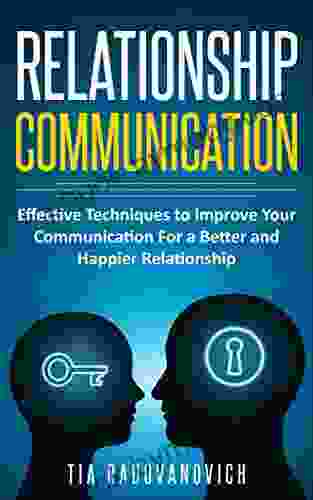
 Cade Simmons
Cade SimmonsUnlock Your Communication Potential: Effective Techniques...
Communication is a fundamental...

 Floyd Richardson
Floyd RichardsonFire and Ashes: Success and Failure in Politics
Fire and Ashes: Success and...
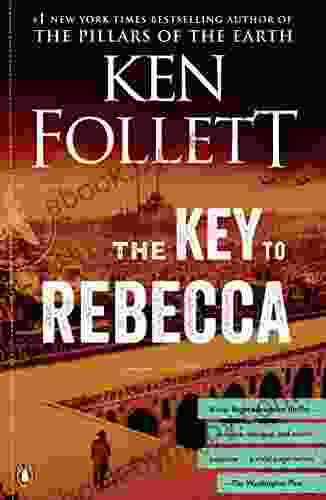
 Oliver Foster
Oliver FosterUnlock the Enchanting Mystery of Ken Follett's "The Key...
Embark on a captivating literary journey into...
4.6 out of 5
| Language | : | English |
| File size | : | 17710 KB |
| Text-to-Speech | : | Enabled |
| Screen Reader | : | Supported |
| Enhanced typesetting | : | Enabled |
| X-Ray | : | Enabled |
| Word Wise | : | Enabled |
| Print length | : | 706 pages |
| Lending | : | Enabled |


